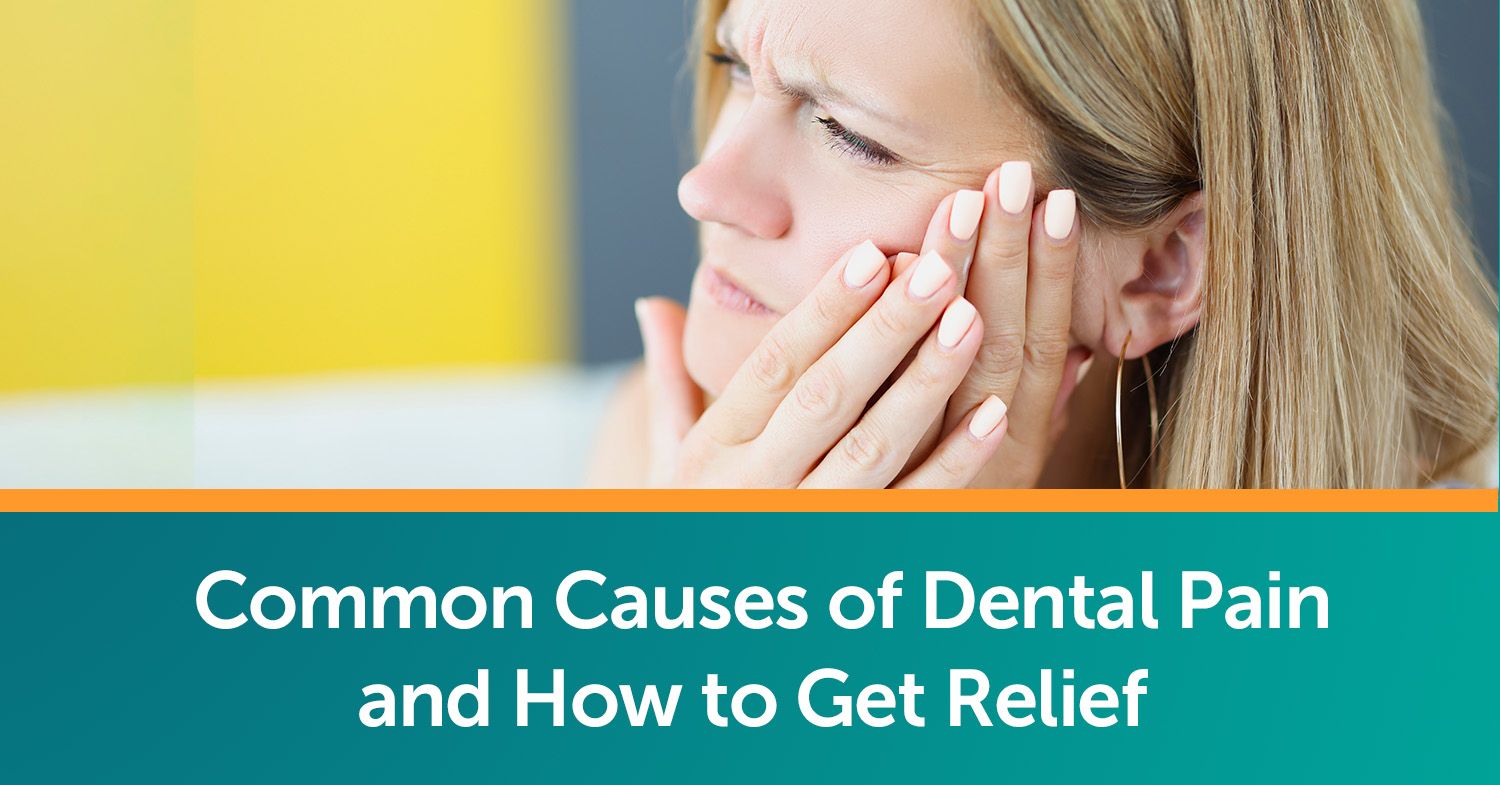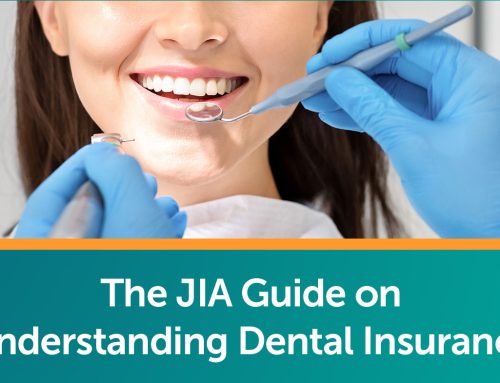Dental pain can ruin anyone’s day. Luckily, there are ways to help ease the discomfort. Learn about the common causes of dental pain, how they’re treated, and what you can do to get relief.
Cavities
Arguably, the most common cause of dental pain is cavity or tooth decay. This can feel like a dull pain that may radiate to other areas of your face, like your sinuses or jaw.
While bacteria are a constant in both our mouths and general body health, too much of it can cause problems. Over time, bacteria in your mouth will slowly begin to wear away at your enamel, causing cavities to form.
Cavities are, at first, barely noticeable, making them hard to catch early on. Proper brushing and flossing can help prevent cavities before they happen, and visiting your dentist regularly for cleanings can allow you to catch cavities before they get worse. However, if you already have cavities, they won’t go away on their own. You’ll likely need a filling to restore the hole caused by decay. While you wait for your dentist appointment to fill your cavity, short-term pain relief from ibuprofen will help ease the discomfort.
Tooth Abscess
A tooth abscess can be very painful and is an infection within the tooth, otherwise known as the “pulp chamber.” The pulp is the soft inner part of your tooth and is made up of tissues, nerves, and blood vessels.
An abscess can occur when a cavity has reached the pulp chamber, a dental treatment such as a crown that gets too close to the chamber, or trauma to a tooth, like grinding. Your dentist will need to clean and drain your mouth of the abscess. While waiting for your dentist appointment with an abscessed tooth can be excruciating, coconut oil can provide some relief before your appointment. Coconut oil has antiseptic effects and can help draw infections out and help the sore spot on your gum deflate. Gently massaging coconut oil onto the tooth and gums where the pain is or swishing a small spoonful around in your mouth for two minutes can help with pain relief.
Mouth Sores
Also known as mouth ulcers or canker sores, these are usually small and white and can develop anywhere inside the mouth – on the lips, cheeks, tongue, or gums. Note that these are different than cold sores. Those will appear on the outside of the mouth. Mouth sores will appear inside the mouth.
These can occur for a few different reasons, such as stress, food allergies, hormonal changes, and viruses. It can be a relief to know that mouth sores are unrelated to gum disease, but they can be uncomfortable and even painful at times. The pain may get worse when eating, chewing, or even talking. They will typically clear up on their own within two weeks, but if the pain is bothering you, use an OTC topical for canker sores to numb the area to ease the pain. If the pain lasts longer than two weeks, it’s time to visit your dentist, who can prescribe medication or even a special mouthwash to clear up your mouth sores.
Gum Disease
Gum infections can cause tooth pain and lead to gum disease. Mild gum disease is called gingivitis. Without treatment, gingivitis may turn into periodontitis, the more severe form of gum disease. This can be caused by poor oral hygiene, poor diet, smoking, excessive alcohol consumption, or even genetics.
While this blog post is about dental pain, gum disease may not always cause pain unless the infection is severe. This is why it’s important not to miss your dental visits, as your dentist will catch the problem before your mouth is in serious trouble.
Grinding Teeth
Bad dental habits can also cause dental pain. Teeth grinding, also known as bruxism, is one of these bad habits. When you grind your teeth, it puts pressure on the muscles and tissues of the jaw. A serious case of teeth grinding can result in cracked or chipped teeth. Or, the tooth enamel can wear down, exposing more of the nerve. While you may have aches or pain in your teeth, you may also feel your jaw is sore. It can also lead to headaches and general pain around the face.
A mouthguard can help protect your teeth from grinding at night. It’s also worth addressing whether stress is at the core of your teeth grinding, as this is the case for many patients.
Teeth Sensitivity
Have you ever had an ice-cold drink or hot soup and experienced sharp pain in your teeth? This can mean you have teeth sensitivity. In some cases, teeth sensitivity is temporary and will go away after a while. However, if you experience this dental pain regularly, there is likely an underlying problem.
For mild-to-moderate teeth sensitivity, you can try toothpaste made for sensitive teeth, switch to a soft-bristled brush, brush your gums, and cut back on acidic and sugary foods/drinks. These will help keep your enamel and gums in good condition. If you’re experiencing severe pain from sensitive teeth, it’s time to speak to your dentist, as the issue could be serious.
Let Jeffery Insurance Help You Keep Your Mouth in Great Shape
Dental pain is never any fun – if you experience any of the above issues, bring it up with your dentist at your next visit. Looking to have your routine dental visits covered and get financial help with other dental needs? Sign up for a dental insurance plan! Jeffery Insurance would love to help answer questions, compare plans, and help you find the right coverage for your needs through Delta Dental. No matter what, we will be with you every step of the way. We are based in Scottsdale but are happy to assist you wherever you are in Arizona. Jeffery Insurance is Arizona’s health care resource!







